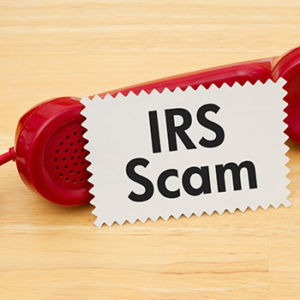 “Bears, Beets, Battlestar Galactica.” If you’re not a fan of The Office, then the first three words of this blog probably made no sense to you, and you questioned my sanity a little bit. I am talking about the iconic scene where Jim Halpert impersonates his quirky coworker, Dwight Schrute. The scene ends with Dwight yelling, “Identity theft is not a joke, Jim! Millions of families suffer every year!” Despite Jim’s innocuous prank, I think Dwight Schrute was definitely on to something.
“Bears, Beets, Battlestar Galactica.” If you’re not a fan of The Office, then the first three words of this blog probably made no sense to you, and you questioned my sanity a little bit. I am talking about the iconic scene where Jim Halpert impersonates his quirky coworker, Dwight Schrute. The scene ends with Dwight yelling, “Identity theft is not a joke, Jim! Millions of families suffer every year!” Despite Jim’s innocuous prank, I think Dwight Schrute was definitely on to something.
Unfortunately, criminals are using tax season to steal the personal information of many concerned citizens as they are filing their taxes.
 The horror stories abound! Maybe you’ve been on the receiving end of a call from the “IRS” saying, “we’re going to arrest you,” or you’ve received a text from a random number showing, “Click this link to view your tax return documents,” or “Click here to view your tax refund status.” You are not alone. These types of scams are happening so frequently that the Internal Revenue Service has posted the following statement on its website:
The horror stories abound! Maybe you’ve been on the receiving end of a call from the “IRS” saying, “we’re going to arrest you,” or you’ve received a text from a random number showing, “Click this link to view your tax return documents,” or “Click here to view your tax refund status.” You are not alone. These types of scams are happening so frequently that the Internal Revenue Service has posted the following statement on its website:
“The IRS will never:
- Call to demand immediate payment using a specific payment method, such as a prepaid debit card, gift card, or wire transfer. Generally, the IRS will first mail a bill to taxpayers who owe taxes.
- Threaten to immediately bring in local police or other law enforcement groups to have the taxpayer arrested for not paying.
- Demand that taxes be paid without allowing taxpayers to question or appeal the amount owed.
- Call unexpectedly about a tax refund.”
 So what can we do about these fraudsters?
So what can we do about these fraudsters?
You can report suspicious emails or fraudulent phone calls posing as the IRS or US Treasury to phishing@irs.gov. For emails, the IRS recommends:
- Don’t reply.
- Don’t open any attachments. They can contain malicious code that may infect your computer or mobile phone.
- Don’t click on any links. Visit our identity protection page if you click on links in a suspicious email or website and enter confidential information.
- Forward – preferably with the full email headers – the email as-is to phishing@irs.gov.
- Don’t forward scanned images because this removes valuable information.
- Delete the original email.
As for reporting calls, you would email the same address listed, just include details about the phone call, such as the telephone number of the scammer, the telephone number they may have instructed you to return the call, the date and time of the call, and where you were when you received the call. You can also report these types of calls to the Federal Communications Commission and the Federal Trade Commission.
It may feel like a drop in the bucket because there are so many scammers out there.
The most important reason why I advocate for reporting these calls or emails is to hopefully prevent someone who may be more susceptible to these pranks (i.e., your grandparents) from accidentally clicking a link and having to unwind the mess that ensues from identity theft.
Best of luck in this tax season, and don’t forget to have some fun! You can dress up like your coworker to freak them out one day just like Jim did to Dwight.
March 2023
